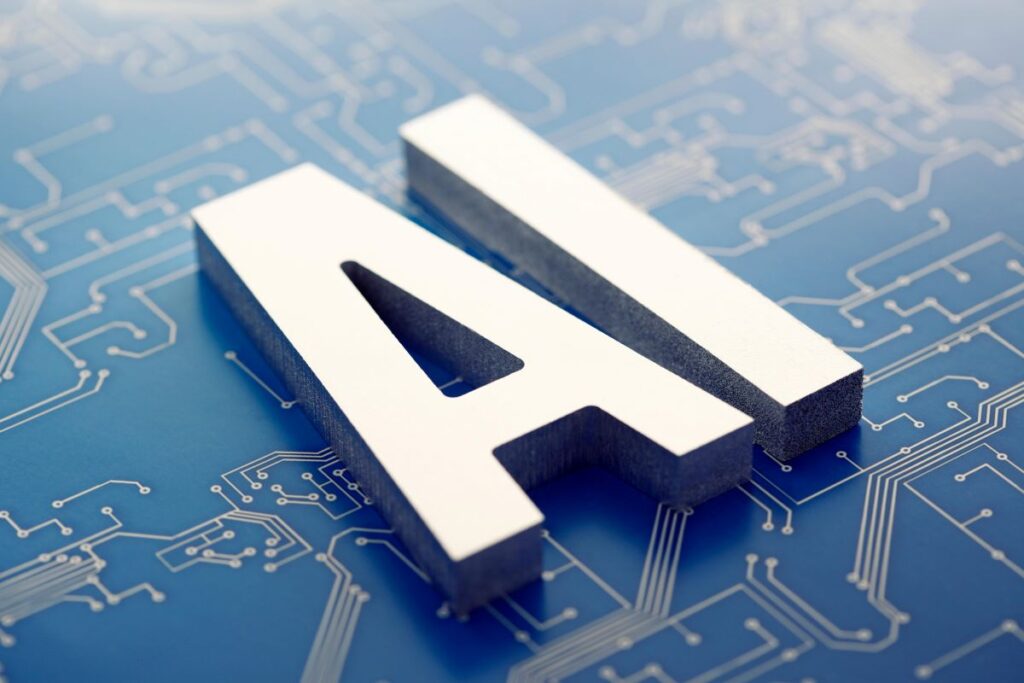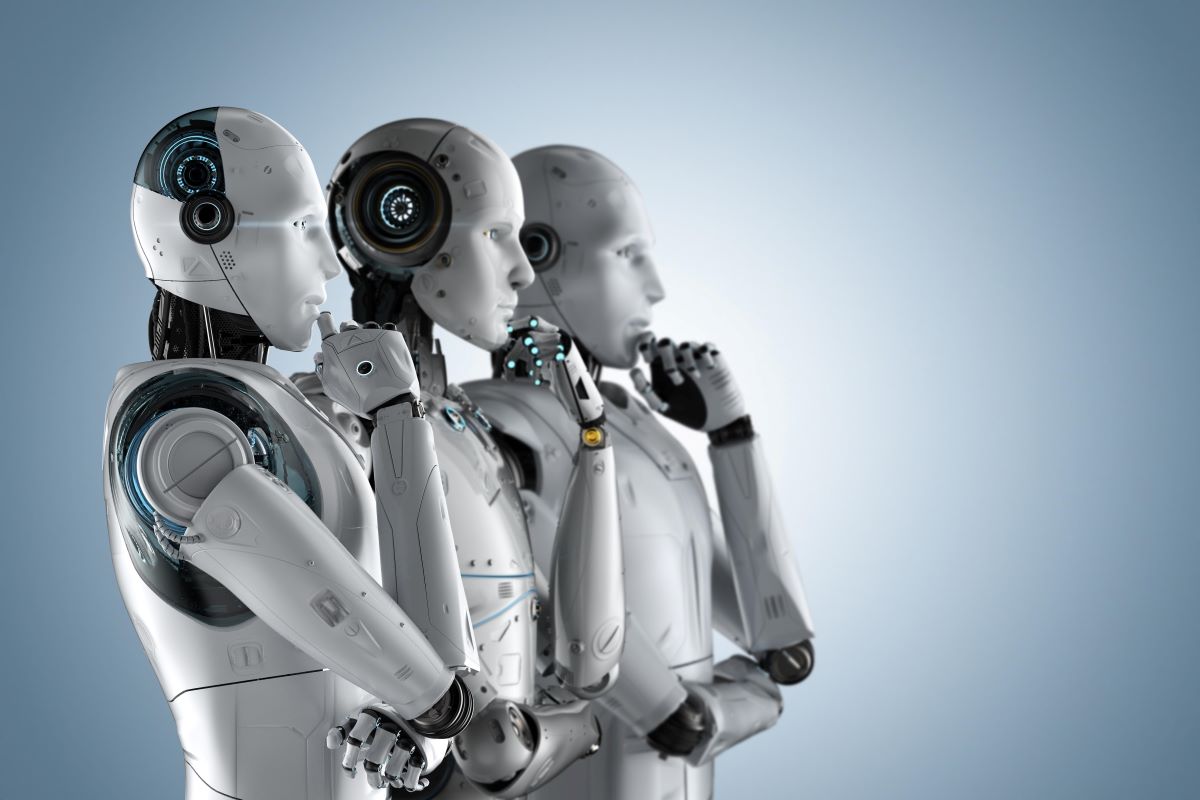In this comprehensive article, we explored the transformative impact of AI-driven diagnostics in healthcare, examining both the benefits and challenges from the perspectives of patients and clinicians.
The healthcare landscape is undergoing a profound transformation, largely propelled by the integration of Artificial Intelligence (AI) into diagnostic processes. One of the most prominent manifestations of this transformation is the rise of mobile health apps powered by AI, offering rapid and accurate assessments.
While these AI-driven diagnostics have the potential to redefine patient care, they also bring forth a wave of controversies and challenges. This article delves deeper into the subject, analyzing the multifaceted benefits and problems from the perspectives of both patients and clinicians.
What is AI-driven diagnostics in healthcare?
“AI-driven diagnostics” in healthcare refers to the use of Artificial Intelligence (AI) technologies to assist in the process of diagnosing medical conditions and diseases. This involves leveraging AI algorithms and machine learning techniques to analyze vast amounts of patient data, including medical images, electronic health records, and clinical notes, in order to make more accurate and efficient diagnoses.
Key components of AI-driven diagnostics in healthcare include:
- Medical Imaging Analysis: AI can analyze medical images such as X-rays, CT scans, MRIs, and pathology slides to detect abnormalities, tumors, fractures, and other medical conditions. AI algorithms can highlight potential issues for review by radiologists and other specialists, improving the speed and accuracy of diagnoses.
- Data Integration: AI systems can integrate and analyze data from various sources, including patient histories, laboratory test results, and genetic information. This comprehensive analysis can aid in identifying patterns, risk factors, and potential diagnoses.
- Pattern Recognition: AI algorithms excel at recognizing patterns within data. In healthcare, this capability is crucial for identifying trends in patient data that may point to specific medical conditions. For example, AI can identify patterns of blood sugar fluctuations indicative of diabetes.
- Predictive Analytics: AI can be used for predicting patient outcomes, disease progression, and treatment responses based on historical patient data and real-time information. This helps clinicians make informed decisions about treatment plans.
- Natural Language Processing (NLP): NLP is used to extract valuable information from unstructured clinical notes and reports. AI-driven NLP can assist in extracting relevant diagnostic information and trends from free-text patient records.
- Genomic Analysis: AI can analyze genomic data to identify genetic predispositions to diseases and help in tailoring treatment plans based on a patient’s genetic profile.
- Early Detection: AI can aid in the early detection of diseases, which can lead to more effective treatments and improved patient outcomes. For instance, AI can help identify early signs of certain cancers or neurological conditions.
- Reducing Diagnostic Errors: Diagnostic errors are a significant concern in healthcare. AI can help reduce such errors by providing clinicians with additional information and insights to support their decision-making process.
AI-driven diagnostics have the potential to significantly enhance the accuracy and speed of medical diagnoses, ultimately improving patient care. However, the implementation of AI in healthcare also comes with challenges, including the need for robust data security and privacy measures, regulatory compliance, and addressing concerns about the role of AI in clinical decision-making. It’s crucial for healthcare organizations to carefully plan and implement AI-driven diagnostic systems while maintaining the highest standards of patient care and ethical considerations.

AI-driven diagnostics: Benefits for Patients
1. Faster Diagnoses
The speed at which AI-driven diagnostics can process and analyze medical data is nothing short of remarkable. What might take a team of clinicians hours, or even days, to assess can now be accomplished within minutes. This rapidity can be a game-changer in critical medical situations, where every second counts. Timely diagnoses can be the difference between life and death.
Take, for instance, the case of stroke detection. AI algorithms can swiftly analyze medical images, such as CT scans or MRIs, to identify signs of a stroke. This expeditious analysis enables doctors to make informed decisions promptly, potentially saving a patient’s life or preventing long-term disability.
2. Increased Accessibility
Mobile health apps are a manifestation of healthcare democratization. They are accessible to anyone with a smartphone and an internet connection. This accessibility has the potential to bridge gaps in healthcare access, particularly in remote or underserved areas. Patients who previously had limited access to medical expertise can now leverage AI-driven diagnostics to receive timely assessments and recommendations.
Additionally, mobile health apps empower patients to take a more active role in managing their health. With easy access to their health data and personalized recommendations, patients can make informed decisions about their well-being.
3. Personalized Healthcare
One of the most promising aspects of AI-driven diagnostics is their ability to provide personalized healthcare. Each patient is unique, with distinct medical histories, genetics, and lifestyles. AI algorithms excel at processing vast datasets and identifying patterns, making them well-suited to tailor medical recommendations to an individual’s specific needs.
For example, AI can analyze a patient’s medical history, genetic markers, and lifestyle factors to create a personalized treatment plan. This tailored approach not only improves the effectiveness of treatment but also reduces the likelihood of adverse reactions to medications or therapies.
4. Reduced Costs
Efficiency is a hallmark of AI-driven diagnostics. By streamlining the diagnostic process and reducing the need for extensive and often costly testing, these technologies have the potential to lower healthcare costs for patients. Fewer unnecessary tests mean less financial burden on patients and healthcare systems.
Moreover, by identifying conditions at an earlier stage, AI can contribute to the prevention of costly complications. For example, early detection of diabetes through AI-driven analysis of blood sugar trends can enable patients to manage their condition more effectively, potentially reducing the need for costly treatments related to diabetes-related complications.
AI-driven diagnostics: Problems for Patients
1. Privacy Concerns
The use of AI in healthcare inevitably raises concerns about the security and privacy of patient data. As mobile health apps collect and analyze sensitive medical information, patients worry that their data may be vulnerable to breaches, hacks, or misuse.
Maintaining the privacy and security of patient data is paramount in AI-driven diagnostics. To address these concerns, healthcare organizations and app developers must implement robust security measures, adhere to strict data protection regulations, and educate patients about the steps taken to safeguard their information.
2. Lack of Human Touch
While AI can provide rapid and accurate assessments, some patients may miss the human interaction and empathy that come with a traditional clinical visit. Building trust in AI algorithms is an ongoing challenge, as patients may be hesitant to fully embrace technology as a substitute for human expertise.
To mitigate this problem, healthcare providers should emphasize that AI complements rather than replaces human clinicians. AI can handle routine tasks and provide valuable insights, but the human touch remains irreplaceable when it comes to delivering compassionate care and addressing patients’ emotional needs.
3. Limited Access
Not everyone has access to smartphones or the internet. This digital divide can create disparities in healthcare access, leaving some patients behind in the AI-driven healthcare revolution. This issue is particularly pronounced in underserved and economically disadvantaged communities.
Addressing this problem requires concerted efforts to expand internet access and digital literacy in underserved areas. Additionally, healthcare organizations should explore alternative means of providing AI-driven diagnostic services to those without smartphones, such as through community clinics or partnerships with local organizations.
AI-driven diagnostics: Benefits for Clinicians
1. Assistance in Diagnosis
AI-driven diagnostics serve as invaluable tools for clinicians. These technologies can process vast amounts of medical data, including images, lab results, and patient histories, to provide clinicians with quick and accurate diagnostic suggestions.
Clinicians can leverage AI to enhance their decision-making process. For example, an AI system analyzing a patient’s medical history may suggest a differential diagnosis that a clinician might not have considered, prompting a more comprehensive evaluation and potentially preventing diagnostic errors.
2. Time Savings
Time is a precious commodity in healthcare. Clinicians often find themselves burdened with administrative tasks, such as data entry and documentation, which can detract from patient care. AI has the potential to alleviate this burden by automating routine tasks.
For instance, speech recognition software powered by AI can transcribe verbal patient notes, significantly reducing the time clinicians spend on paperwork. This time savings allows clinicians to allocate more of their energy and expertise to direct patient care, ultimately improving the patient experience.
3. Continuous Learning
Medical knowledge is continually evolving, with new research and clinical guidelines emerging regularly. Keeping up with these developments can be challenging for clinicians. AI algorithms, however, can continuously learn from vast datasets and evolving medical knowledge, helping clinicians stay up-to-date with the latest advancements in their field.
AI-driven systems can alert clinicians to new research findings or guideline updates that are relevant to their patients. This ensures that clinicians are equipped with the most current information when making treatment decisions.
AI-driven diagnostics: Problems for Clinicians
1. Loss of Autonomy
Some clinicians express concerns that the integration of AI into healthcare could lead to a loss of clinical autonomy. They worry that decisions may become more algorithm-driven than based on their expertise and judgment.
To address this concern, it’s essential to emphasize that AI should complement and enhance clinical decision-making rather than replace it. Clinicians should view AI as a valuable tool that augments their capabilities, helping them make more informed decisions and improving patient outcomes.
2. Technical Challenges
The successful integration of AI into healthcare systems requires technical expertise. Not all healthcare professionals are well-versed in AI technology, and the implementation of AI solutions can pose significant challenges. These challenges include selecting the right AI systems, integrating them into existing workflows, and ensuring data interoperability.
To overcome these hurdles, healthcare organizations should invest in training and support for their staff. Clinicians should have access to education and resources that enable them to effectively use AI tools in their practice.
3. Legal and Ethical Dilemmas
The use of AI in healthcare raises complex legal and ethical questions. Clinicians may grapple with dilemmas related to liability, accountability, and ethical considerations. For example, who is responsible if an AI algorithm makes an incorrect diagnosis or recommends a treatment that goes against a clinician’s judgment?
To address these dilemmas, healthcare organizations and policymakers must establish clear guidelines and regulations for the use of AI in healthcare. This includes defining the roles and responsibilities of AI systems, clinicians, and healthcare institutions, as well as establishing mechanisms for addressing disputes or errors.
Conclusion
AI-driven diagnostics represent a monumental shift in the way healthcare is delivered and received. The benefits for both patients and clinicians are substantial, from faster and more accurate diagnoses to time savings and continuous learning. However, the journey toward widespread adoption of AI in healthcare is not without its challenges.
Addressing privacy concerns, bridging the digital divide, and building trust in AI are critical steps to ensure that patients fully embrace these technological advancements. Likewise, clinicians must navigate the complexities of integrating AI into their practice while maintaining their autonomy and ethical standards.
In this era of AI-driven diagnostics, striking a balance between the advantages of AI and the human touch in healthcare is paramount. AI should be viewed as a powerful ally that enhances the capabilities of healthcare professionals and improves patient outcomes. With careful consideration, collaboration, and regulation, we can harness the full potential of AI to revolutionize healthcare while preserving the essential human element that defines compassionate and holistic patient care.
If you want to get the best digital health news, you can visit our website, Digital Salutem. We will update digital health news every week, so please keep in contact with us every week! If you have any feedback or suggestion about patient care, wearables, digital health news, or anything, please don’t hesitate to send an email to us!
Check our YouTube Channel, Healthcare Uncomplicated. To find out more about how we can help you with your Digital Healthcare Transformation, Healthcare organizational growth, or Healthcare brand positioning via our Partner as a Solution service, please get in touch via phone at +44 (0)1273 458590 or via e-mail: info@digitalsalutem.com





